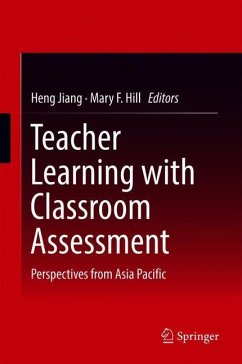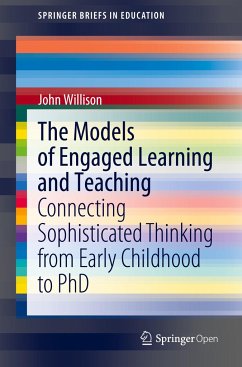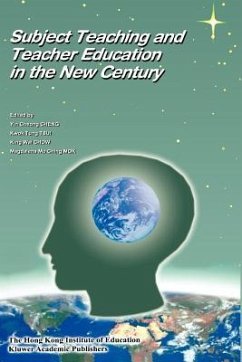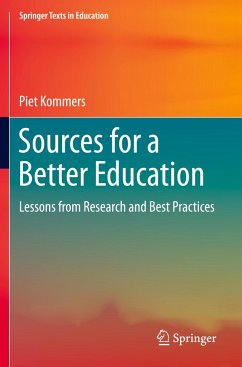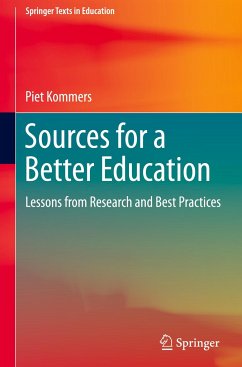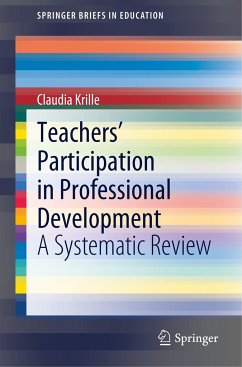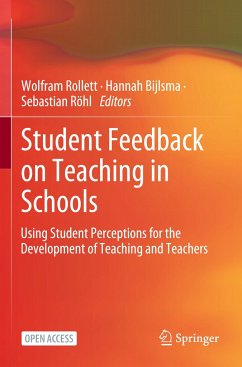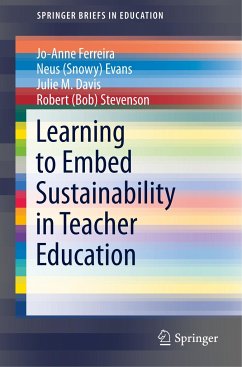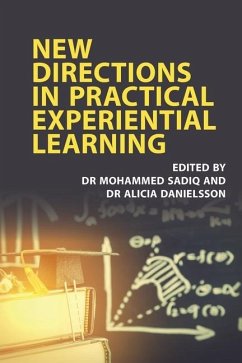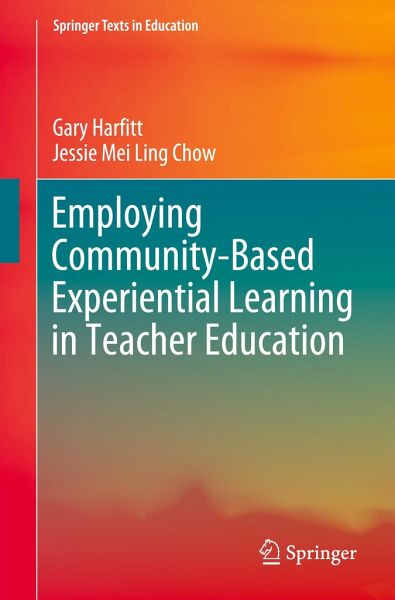
Employing Community-Based Experiential Learning in Teacher Education

PAYBACK Punkte
34 °P sammeln!
This book positions itself at the intersection of the interrelationship between three key areas of initial teacher education: constructivist learning theories, teaching practicum, and the promotion of reflective practices. It presents an innovative approach to teacher preparation at undergraduate and postgraduate levels by critically examining the implementation of a mandatory experiential learning block across subject disciplines on undergraduate and postgraduate teacher preparation courses. This book presents multiple examples and case studies of these varied experiential learning projects t...
This book positions itself at the intersection of the interrelationship between three key areas of initial teacher education: constructivist learning theories, teaching practicum, and the promotion of reflective practices. It presents an innovative approach to teacher preparation at undergraduate and postgraduate levels by critically examining the implementation of a mandatory experiential learning block across subject disciplines on undergraduate and postgraduate teacher preparation courses. This book presents multiple examples and case studies of these varied experiential learning projects that will inform academics, teachers and policymakers. Through these rich examples the authors set out to address the theory-practice dilemma in teacher education, where teachers-to-be are often positioned as 'consumers' of educational research in classrooms, read reference books and academic papers on teaching, and observe university and school experts before applying the same acquired theories and practices in their own classes. In the book the authors argue for a shift away from this conventional teacher-learning curriculum that is characterised by the separation of theory and practice, choosing instead to promote pedagogy and methods courses where practice underpins all learning. These pedagogical perspectives include the promotion of a diverse range of learning contexts (including on- and off-campus learning sites) for student teachers to experience during their time on teacher education courses.





